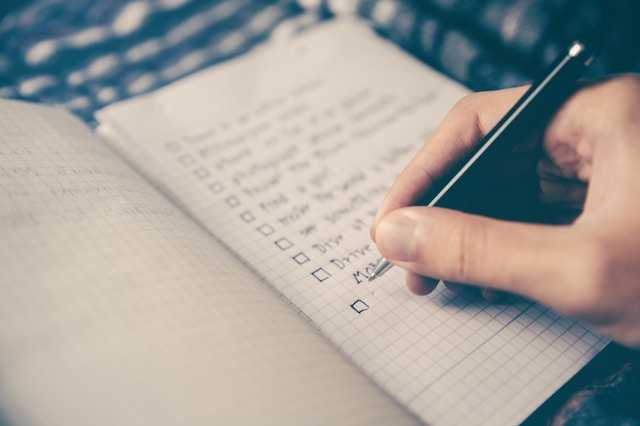My Approach to Taking Notes
PracticesCareerSoftware Engineering
Taking notes is kind of like flossing but for the corporate world. It’s essential yet frequently overlooked. We all know we should do it more, but we let other things get in the way.
Good notes are helpful in pretty much every possible situation. Let’s say you want to give feedback.
You can wing it and hope you somehow remember what happened months ago. Or you can rely on your carefully collected notes and make your life way easier in the process. I know I prefer the second approach. Let me share how I go about it.
When To Take Notes
I’m going to start with when to take notes. I think the cadence is the most important aspect of this whole endeavor. Yes, more important than what you write or where you maintain your notes. Consistency beats any fancy system you can think of.
If it were so easy, though, everybody would be doing it already. The challenge lies in finding moments to take notes amidst a busy day. Over the years, I’ve figured out the specific times that work best for me. By using these opportunities to collect as many notes as possible, I’ll have an easier time once I sit down to think about the feedback I want to give.
During Meetings

Meetings offer an excellent opportunity to observe how others present their ideas. It’s not just about the content. You can focus on what they ask, how they contribute, or how they explain their arguments. Small improvements in your communication increase your effectiveness in spreading your ideas. Thus, you can find plenty of suggestions to share with them.
However, this isn’t easy to do! I struggle to take notes during meetings, more so if I’m actively participating. So, I limit myself to very short notes. Otherwise, I tend to get lost and miss the actual content of the meeting. That’s not what you want.
Shortly After the Meeting
Taking notes straight after the meeting works better for me, while the information is fresh in my mind. It’s the perfect time to write it down and keep it for later.
What if you have overlapping meetings without a break? I try to squeeze some quick note-taking during the short breaks in between them. It can make your day stressful as you sacrifice your breathing time. It’s not something to abuse. Even then, it’s so effective that it’s worth it for me.
At the End of the Week
Before signing off for the weekend, I like to reflect on the week’s events. I check places like my calendar, open documents, or anywhere else where I can find the stuff I was involved with for the past few days. I discover a lot of things to share that way, including some that seemed unimportant at the moment.
It’s also a convenient time to balance between positive and critical points. I sometimes drift too much towards negativity, but I’ve found that having the weekend in front of me puts me in the mood to counteract it 😎.
At the End of the Month/Quarter
This moment is the scaled-up version of the previous point. It’s also the one that many people are probably doing already, as it sort of aligns with retrospectives, quarter summaries, or similar. Still, it’s another good moment to look back and check if anything’s missing.
How I Take Notes
Efficiency is crucial when taking notes between other tasks. I optimize for speed and volume.
I create separate notes for individual topics or people. I aim to write the shortest thing I can get away with, in chronological order and with timestamps. For future feedback, I keep context minimal. Instead, I limit myself to observed actions or behaviors. I may leave out the impact, as that’s something I can add later based on the facts.
This note is quite raw and not meant for sharing. I leave enough of a trail to trace it back to the source. This is a lightly edited example from a previous gig:
06.10
- update in the standup: what do you want to convey? what’s the level of details?
-- think of a structure: what happened, what’s coming up, what blocks
13.01
- lack of sync before the workshop, we had two conflicting messages
27.01
- kudos for fixing the CG dependency
23.02
- didn't leave an update before being off, was a bit confusing
05.04
- seemed like you were jumping straight into fixing the bug, without quantifying it first
-- could be taken as lack of prioritization
- what's nextSometimes, I outsmart myself with some garbled notes so cryptic that I can’t decipher them afterward. That’s far from ideal. However, I can’t commit to writing tidy notes all the time. The occasional failure is an acceptable trade-off for me.
The Logistics of Taking Notes
I wouldn’t be too concerned about optimizing logistics as long as your system fits your workflow.
Choosing between digital and handwritten notes is a personal preference. I prefer digital notes for easy access across devices, but sometimes, I resort to pen and paper for quick notes. Regardless of the format, ensure you can find your notes later. Otherwise, all the effort gets wasted.
There are other points of view. For instance, this recent article from Werner Vogels is full of praise for handwritten notes. If you want to be a CTO someday, maybe it’s worth copying that approach instead.
Be Mindful of Where You Put Things

It goes without saying, but you should only store notes where it’s allowed. I try very hard to avoid proprietary details in my notes. That stuff is better suited for official documents, wikis, or similar. Your notes can contain a reference that links to it.
Feedback notes focus on behaviors. It’s relatively easy to write them in a way that you only talk about an individual’s actions and leave any unwanted internal detail. It’s worth getting used to writing things that are safe to share, in case you do it inadvertently.
As for concrete software, there are a ton of solutions to choose from. I use Apple Notes for my personal stuff. I got notes about feedback I received or gave that go five or six years back there.
When to Make Notes Public
As a general principle, you should consider making public anything that could help somebody else. This post, for instance, started as a direct response, but I thought it might benefit others 😊.
Feedback isn’t the best example, as it’s something to share privately. For less personal topics, it’s good to ask yourself if somebody else would read it. Defaulting to sharing leverages what you already did. You can be more impactful with low extra effort. For instance, while migrating one service to the cloud, I had a lot of notes to understand AWS permissions in more detail. At some point, I realized I could show it to others, so I converted it into a post about IAM. I shared it broadly and even reused it on different projects.
You can see that it’s not completely true that making it public is for free. To publish a private note you need to edit it more heavily than when you’re the only consumer.
Notes for Everything
While I’ve focused on feedback throughout this article, it’s not the only thing that benefits from note-taking. The possibilities are endless, even something like learning in public.
A long time ago, I read that John Carmack tracked his work in .plan files. I liked the idea so much that I adopted it, although I keep mine private.
Every now and then, I write down what I’ve been doing lately. I put a timestamp and document what happened. What I’m focusing on, what went well, anything that comes to mind. It’s insightful to go back and see my progress. It gives me perspective on how things are going without too much recency bias. That’s helped me a lot in tracking my growth.
Start Taking Notes
The TLDR is that taking notes is inexpensive if you organize yourself. Moreover, it’s an extremely beneficial investment of your time. If you aren’t doing it now, you have to start. If you do, do it more often.
Thanks to Anna for the feedback.